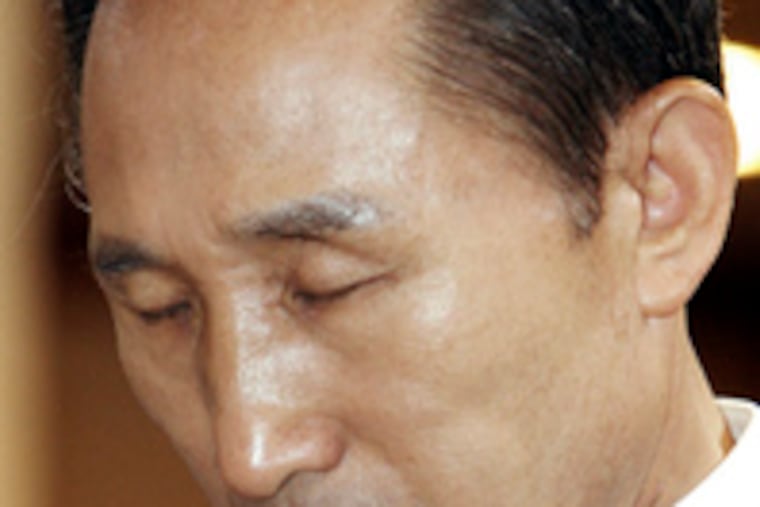South Korea rejects deal to allow U.S. beef imports
SEOUL, South Korea - With his approval ratings poisoned by mass anxiety about U.S. beef, South Korean President Lee Myung Bak backed away yesterday from a wildly unpopular agreement to resume imports of beef from the United States.

SEOUL, South Korea - With his approval ratings poisoned by mass anxiety about U.S. beef, South Korean President Lee Myung Bak backed away yesterday from a wildly unpopular agreement to resume imports of beef from the United States.
Lee had personally approved the deal less than two months ago. His change of heart followed weeks of demonstrations by tens of thousands of South Koreans, many of them mothers with children in hand, who were alarmed and angered that his government would expose their families to the purported risks of mad cow disease.
"We have lost the public's confidence over this matter," Lee told his cabinet yesterday, according to a spokesman.
Plunging poll numbers apparently also played a role in Lee's decision to reverse course. After just 100 days in office, his approval ratings have sunk below 20 percent, a historic low so early in a South Korean president's term.
His government asked the United States yesterday to refrain from shipping beef from animals that were more than 30 months old at time of slaughter, which many people here believe raises the risk of mad cow infection to an unacceptable level.
Until the United States complies, it appears that all beef imports will remain on hold.
Reaction from the United States was swift and negative.
"I can't deny that we're disappointed by this," U.S. Ambassador Alexander Vershbow said. "We think that the agreement that our two governments reached in April is a good agreement, that it's based on international science, and there's no scientific justification to postpone implementation."
Vershbow said the United States did not "see any need for renegotiation of the agreement" because it provided "very effective safeguards to ensure the health of Korean consumers." He also said that U.S. beef more than 30 months old has been confirmed safe in scientific tests.
Several leading U.S. beef companies said Monday that they would voluntarily begin labeling shipments to South Korea to indicate the age of cattle at time of slaughter. But it appeared this would not be enough to satisfy Seoul.
The ban that has substantially closed South Korea's market to U.S. beef producers began after the first case of mad cow was confirmed in Washington state in 2003.
In April this year, Lee moved to lift the beef ban, without consulting many of his own advisers, his party or the public. He did so shortly before a meeting on trade with President Bush in Washington.
Public discontent quickly surfaced. Nearly two weeks ago, Lee apologized for failing to consider South Koreans' fears about mad cow disease. But until this week, his government had insisted it would stick with removing the ban on U.S. beef.
Lifting that ban is a precondition for congressional approval of a long-delayed free-trade deal between the United States and South Korea.
Lee, a former business executive known as "the Bulldozer," won the presidency by a huge margin last year on promises that he had the know-how to rev up the South Korean economy. He has said that ratification of the free-trade agreement will accelerate growth.